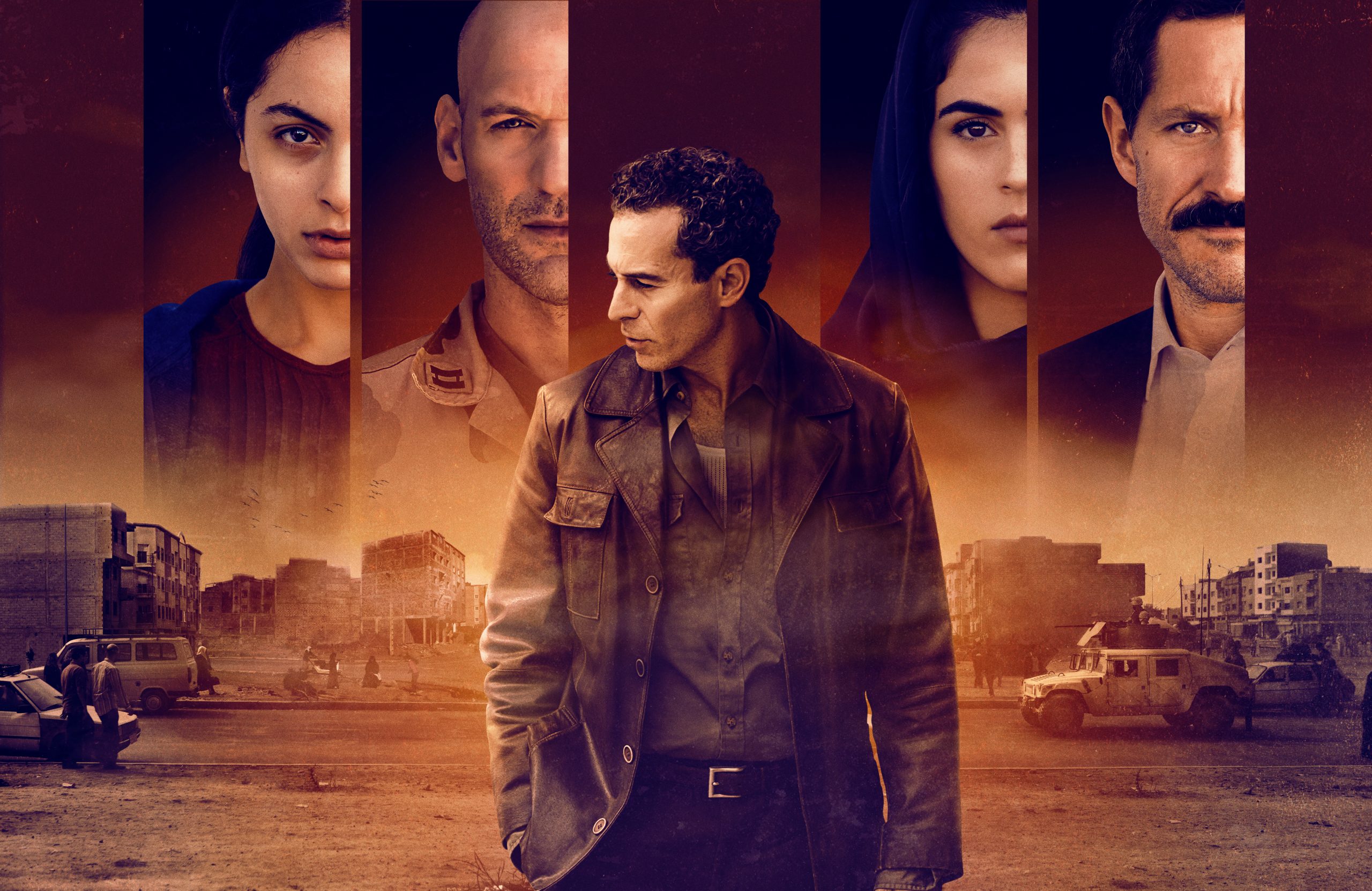Baghdad Central — based on a novel by translator Elliott Colla — has started streaming in the UK, and will be coming soon to other regions:
By Olivia Snaije
The riveting TV series, Baghdad Central, about an Iraqi police inspector trying to keep his daughters safe during the US occupation of Iraq in 2003, just premiered in the UK on Channel 4; it will be coming to Starz Play Arabia tomorrow; and then will finally make it to the US in March. While everyone tries to figure out a way to stream the 6-part series, here are a few literary tidbits tied to the book (and the series) that you might have missed:
To begin with, the author of the book that inspired the series is a professor and translator of Arabic literature. When Elliott Colla began writing Baghdad Central (2014) he had been translating the Libyan author, Ibrahim al-Koni’s Gold Dust.
“Working with him was like an MFA program,” Colla said. “He structures his work so that each chapter is a standalone story; most every chapter has a beginning middle and end. So I had been implicitly learning all these aspects about writing fiction and I copied that technique.”
Poetry was another thing Colla said he thought a lot about while he was writing Baghdad Central.
“Poetry is fundamental to Iraqi literature. I had been tooling around with various translations of poems I liked. Each chapter I wrote, I’d look around at poetry and would navigate it as I was writing. The poetry became like an interior soundtrack for each character. It became the methodology for solving crimes…”
Colla devotes a few pages in the acknowledgments of his book to the “key public role” that poetry plays in Iraq, and its repertoire that includes modernist and experimental verse. “Baghdad Central offers a fleeting glimpse of this rich corpus of Iraqi poetry,” he writes, listing the works and their literary translators that he used, besides the poetry he translated himself, among which extracts from ‘The River God’ by Nazik-al-Malaika, translated by Ibtisam Barakat (Modern Poetry in Translation 2002), or extracts from ‘Sleepers, Wake!’ By Ma’ruf al-Rusafi, translated by A.J. Arberry (Cambridge University Press, 1965).
Poetry is essential to the book and TV series’ central character, Inspector Muhsin Khafaji. Poetry soothes and reassures him, and he often reads it to his bedridden daughter, Mrouj. Khafaji’s character and name, too, is inspired, in part, by someone deeply involved in literature: Colla’s late father-in-law, Muhsin Mahdi, best-known for his knowledge of Islamic philosophy—but whose hobby was to work on The Arabian Nights. Inspector Khafaji’s daughter is called Mrouj, which, Colla tells us, is an uncommon name, the plural of the word “pasture” in Arabic. He adds that the word Mrouj is part of the title of a legendary book called Muruj al–Dhahab, or Meadows of Gold, by the medieval historian from Baghdad, Ali ibn al-Husayn al-Mas’udi.
Also, the character of Professor Zubeida Rashid, played by the dazzling Clara Khoury in the TV series, is named after the wife of The Arabian Nights’ Caliph Harun al-Rashid.
There are other literary connections: According to Colla, Baghdad Central producer Jonathan Curling collaborated in Cairo on the Ramadan series adaptation of Sonallah Ibrahim’s novel, Zaat, (translated into English by Anthony Calderbank). And the actor Waleed Zuaiter, who plays Inspector Khafaji, had put an option on the book On the Hills of God, by Ibrahim Fawal, a deeply moving account written in English about a Palestinian on the eve of Israel’s establishment. The option, said Zuaiter, has since run out, but he hasn’t given up on the idea of adapting the novel into a film.
Last but not least, Colla’s novel is in the noir genre, and one of his favorite books, also made into a brilliant film, is The Big Sleep, by Raymond Chandler. Incidentally, William Faulkner co-wrote the screenplay for the 1946 film.
A few more books that center Iraqi perspectives and take place in Iraq during the US occupation:
Baghdad Marlboro, by Najem Wali, excerpt translated by William Hutchins
The Bookseller’s Murder, by Saad Mohammed Raheem, not yet translated
The American Granddaughter, by Inaam Kachachi, which was translated into English by Norman Youssef, and is unfortunately out of print.
Orbits of Loneliness, by Duna Ghali, excerpt translated by Maia Tabet
My Beautiful Sect, by Mortada Gzar, not yet translated
The Green Zone, by Shakir Noori, which is apparently being translated by Ikram Masmoudi.
The Corpse Washer, by Sinan Antoon, translated by the author
The Index, by Sinan Antoon, excerpt translated by Jonathan Wright
Also: War and Occupation in Iraqi Fiction, (in English) by Ikram Masmoudi
Click HERE to read more from this author.
You can publish this article on your website as long as you provide a link back to this page.


Be the first to comment